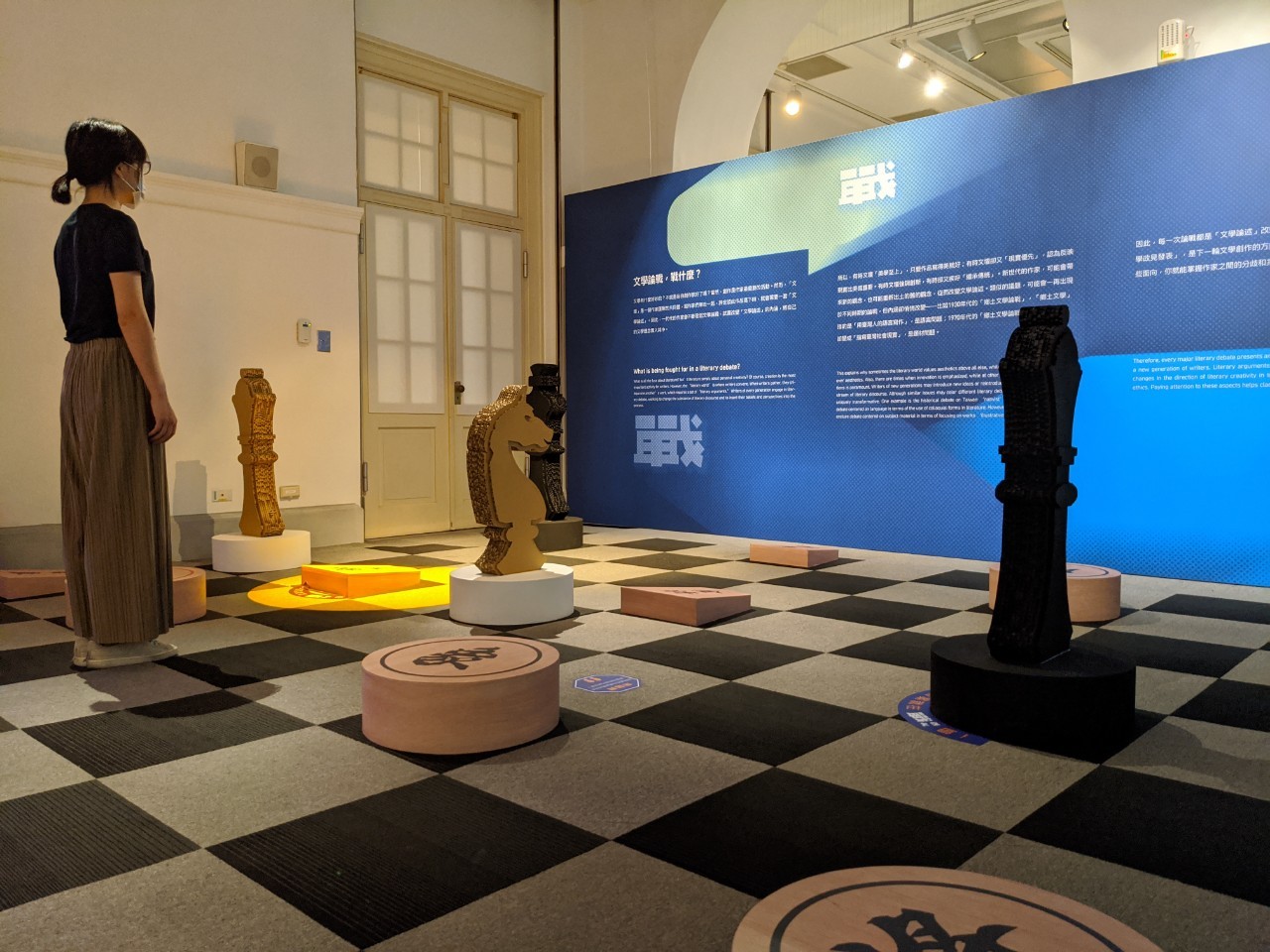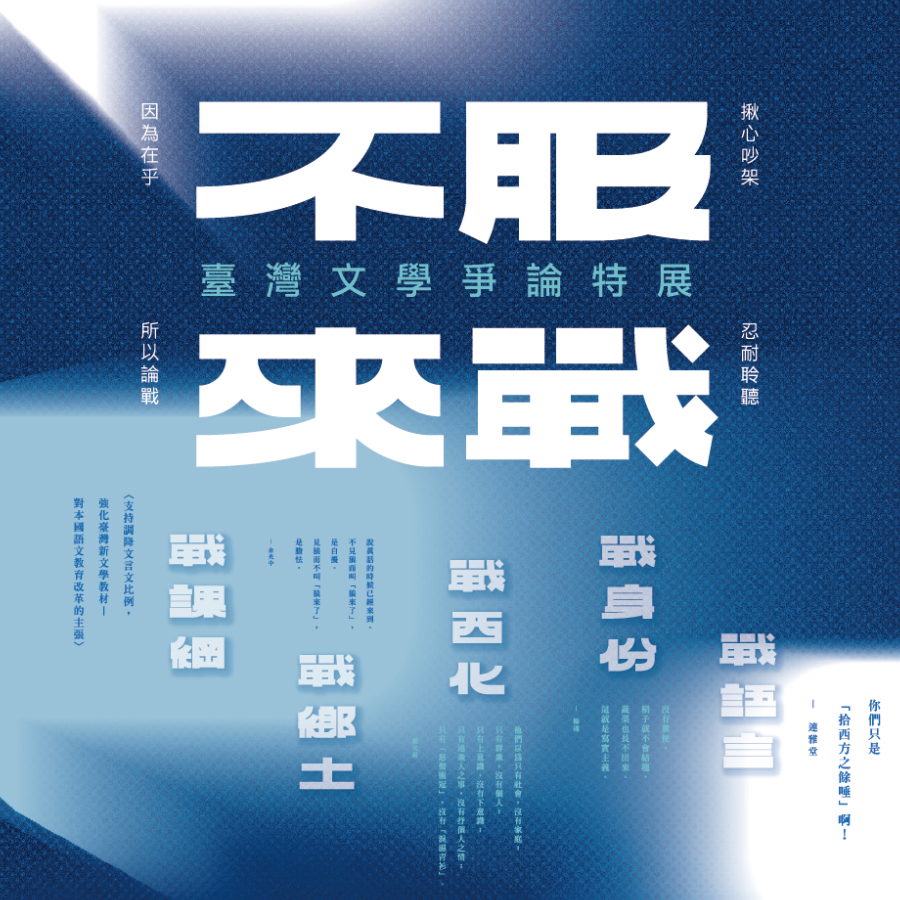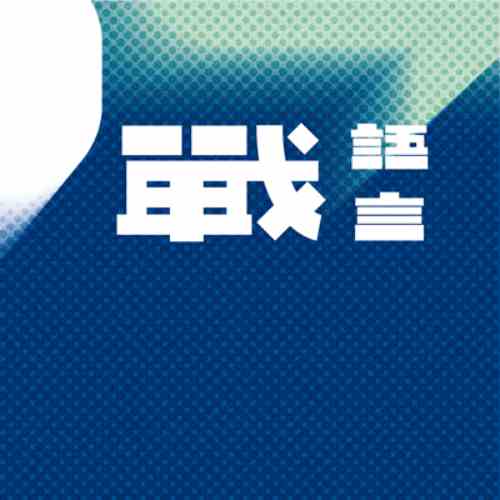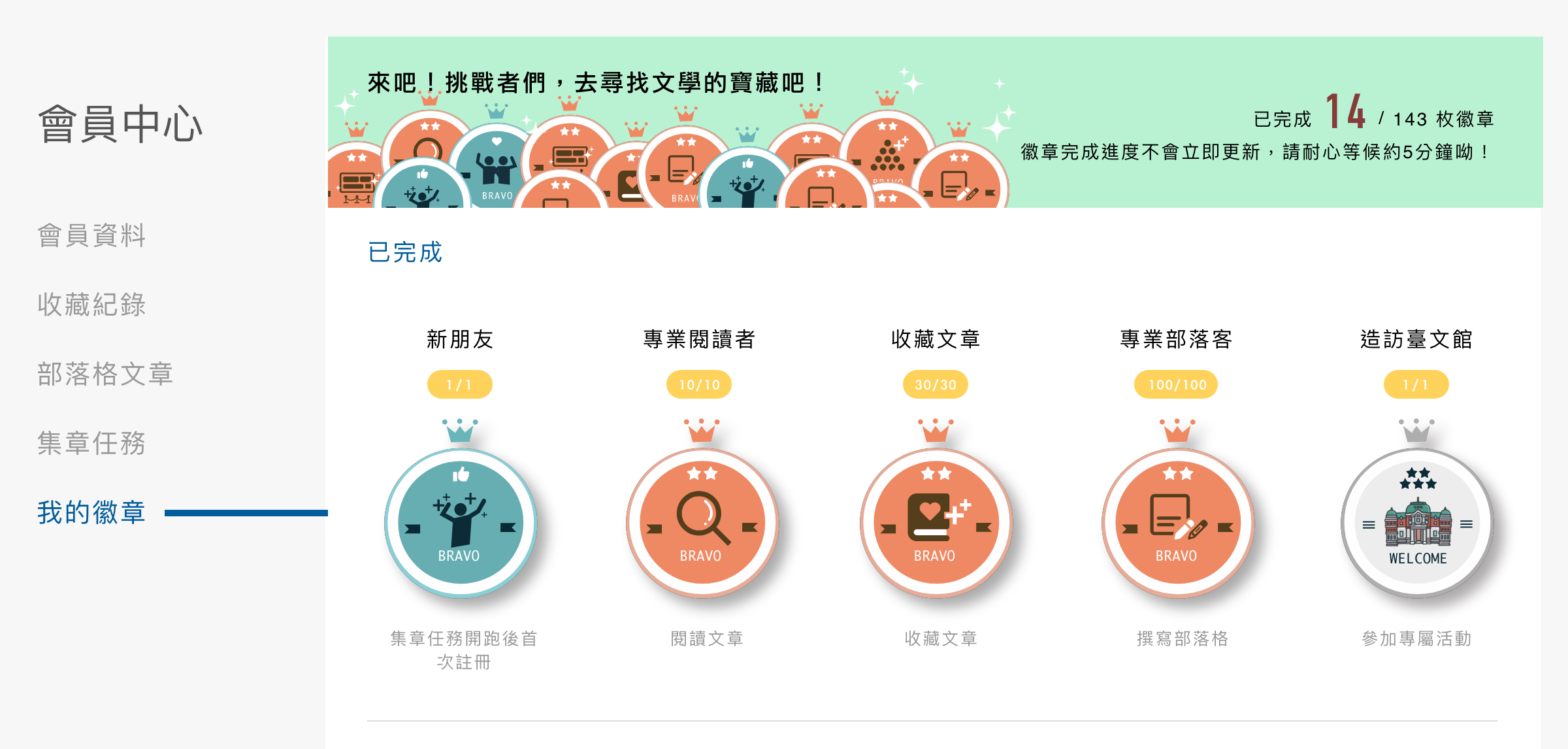Introduction
Unspoken words leave dissatisfaction unvented, while undebated ideas leave meanings unclear. The developmental history of Taiwan literature is virtually a history of 'wars of the pen'. Literature is no exception. Writers use pens as swords, call forth battle formations with words, and face off against one another in earnest, literary combat. While systemic arguments and theories are sometimes established after the dust settles, other times, schisms may be created, adversarial factions formed, and even political taboos ruffled.
Brandishing Pens as Swords: Challenge Me if You Can!
As beliefs enable perseverance, artistic sense prompts critique. Writers have their own beliefs and artistic senses, so they naturally disagree with each other, thus establishing the tradition of laying down mutual challenges.
Over the past century, multiple 'wars of the pen' of varying degrees of severity have been waged upon the battlefield of Taiwan literature. As writers are adept crafters of verbiage, the clashes of words among them have naturally been fierce. The phrase "challenge me if you can" conveys not only the satisfaction of fighting others freely but also the passion of these writer-combatants for the literary arts. Their determination is as sharp as a knife, and the pain suffered in setback or defeat shows what each participant feels is at stake.
All this could be said to start from that day in 1924…
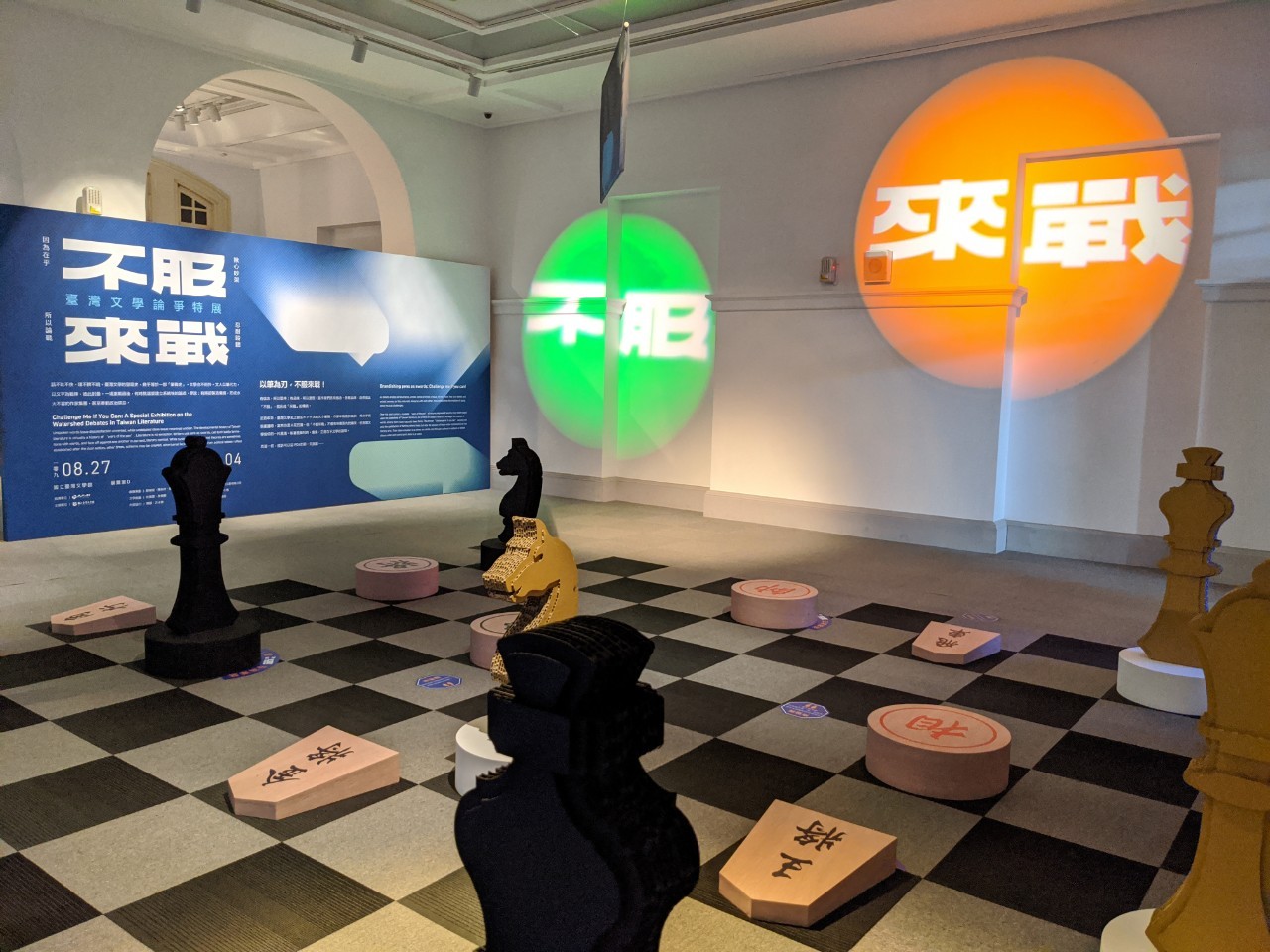
What is Being Fought for in a Literary Debate?
What is all the fuss about literature? Isn't literature simply about personal creativity? Of course, creation is the most important activity for writers. However, the'literary world' is where writers convene. When writers gather, they critique one another's work, which requires a set of "literary arguments." Writers of every generation engage in literary debate, working to change the substance of literary discourse and to insert their beliefs and perspectives into the process.
This explains why sometimes the literary world values aesthetics above all else, while at other times it values realism over aesthetics. Also, there are times when innovation is emphasized, while at other times the preservation of traditions is paramount. Writers of new generations may introduce new ideas or reintroduce old concepts that change the stream of literary discourse. Although similar issues may color different literary debates, their implications can be uniquely transformative. One example is the historical debate on Taiwan'nativist' literature. In the 1930s, this debate centered on language in terms of the use of colloquial forms in literature. However, in the 1970s, the nativist literature debate centered on subject material in terms of focusing on works 'illustrative of Taiwanese society'.
Therefore, every major literary debate presents an opportunity to change the literary discourse and to open the door to a new generation of writers. Literary arguments are 'presentations of literary policies' by writers who propose changes in the direction of literary creativity in terms of language, subject matter, ideas, aesthetic standards, and ethics. Paying attention to these aspects helps clarify the schisms as well as the common ground among writers.
.png)
Every polemical exchange is like two top players playing a chess game
The writers' debates on paper might seem cultured. Yet, their thoughts were tumultuous and must be put into words. When dealing with the essence and future of Taiwanese literature, the writers saw a wider picture; just like two top chess players playing a game, they must take all things into consideration.
The Chinese chess pieces, western chess pieces, and Shogi pieces spreading over the squares of the chessboard are tantamount to the cultures of China, the West, and Japan intersecting in the history of Taiwan. This seemingly chaotic situation is similar to the debates and standoffs between writers, demonstrating the long-term blending of ethnic groups in Taiwan.
